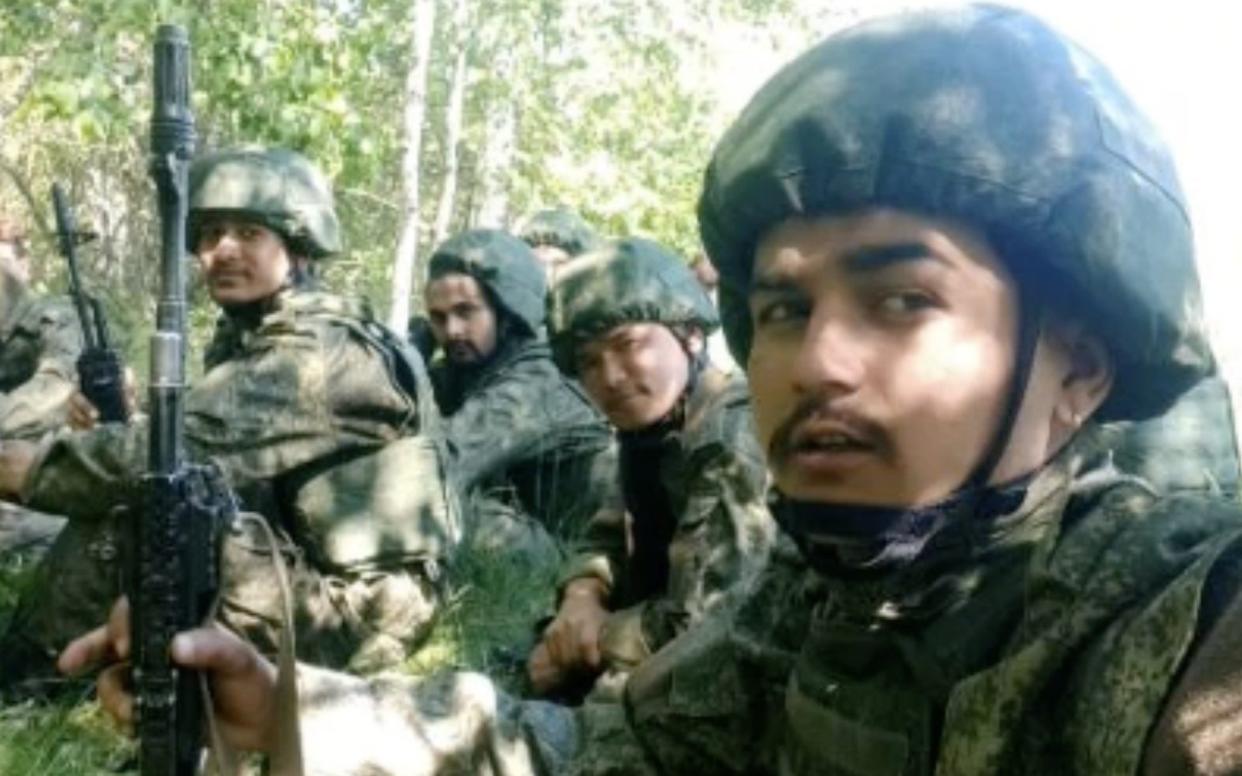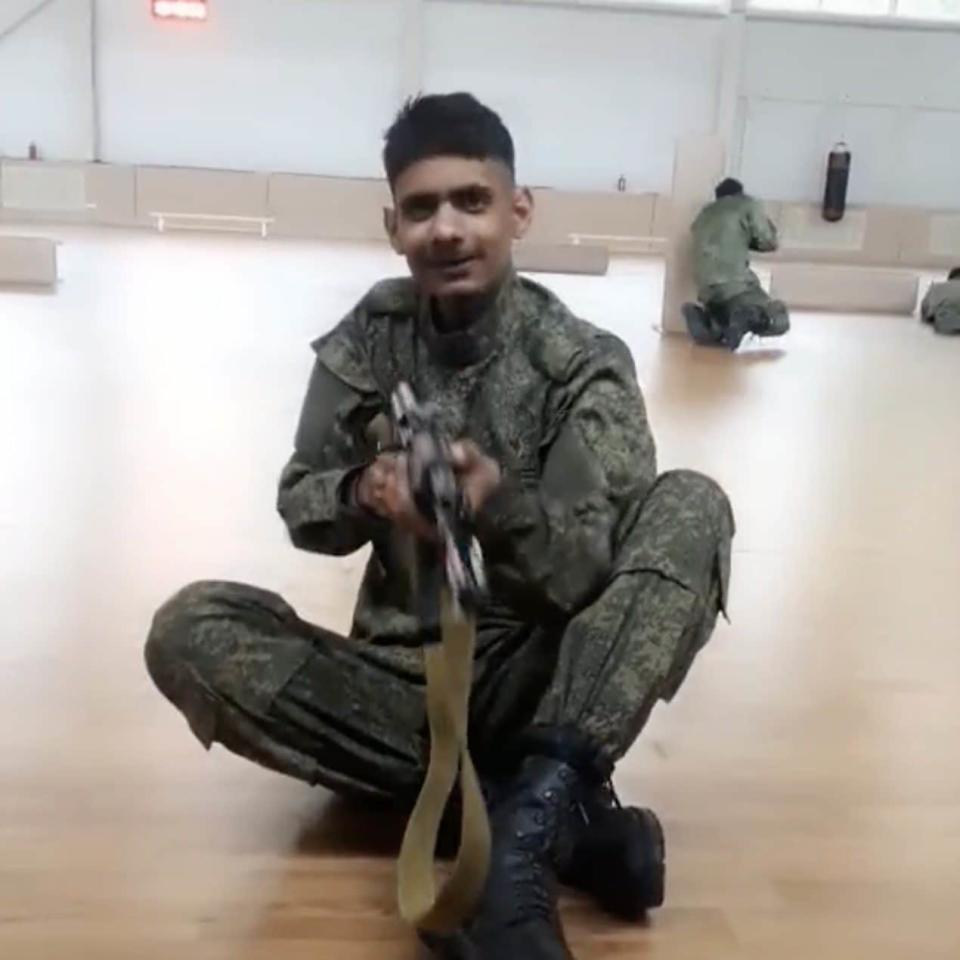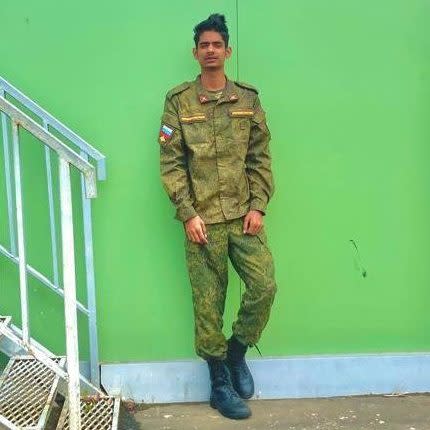Russia’s Wagner mercenaries hire Gurkha soldiers spurned by India

Dozens of elite Gurkhas have joined Russia’s Wagner mercenary group after India tightened the rules governing the recruitment of Nepalese troops into its army.
Gurkha soldiers have shared videos online showing them training with firearms at bases in Russia and Belarus, dining in military canteens and discussing the potential risks of fighting in Ukraine.
The mercenary force’s new recruits have become a cause for embarrassment for the government in Kathmandu, which has come under fire for failing to stop Nepalese citizens from joining Russia’s war effort.
Kamal Acharya, 22, left the small Nepalese village of Chisapani for Moscow in early May to join the Wagner Group.
On May 29, he shared a picture of himself holding an assault rifle inside a Russian military installation. A later TikTok video shows him effortlessly disassembling and reassembling the weapon.

Umesh Shahi, a friend of Mr Acharya, told The Telegraph he had travelled to Russia after learning that Moscow was paying good salaries for mercenary fighters.
“He told us it’s a risk but the money lured him to go,” he said.
Other Gurkhas who have joined up with the Kremlin’s forces have done so after completing university studies in Russia.
“I had two choices after finishing my studies: to remain unemployed or to join the Russian Army,” one man, who completed his medical degree in Russia and joined its military instead of returning home, told Nepal TV.
The Gurkha said his physical fitness was key to his acceptance into the army after he applied to join at the end of May.
He said more than a dozen Nepali citizens were undergoing intensive training alongside other foreign fighters at a base near the border with Ukraine.
“Our training encompasses the use of advanced weaponry, and it spans throughout the day and sometimes extends into the night,” he said.
“After one year, citizenship is also available. If I don’t die in one year, I will live here,” he said, adding that he is receiving a monthly payment equivalent to 50,000 Nepalese rupees (£290), along with insurance coverage, during the rigorous training.

A former Nepali Army soldier from Karnali Province, who has joined the mercenary group, told Nepal TV that he had found out about “opportunities in the Russian Army” while working as a security guard in Dubai.
Now enrolled in the Russian military, he found his prior training in the Nepali Army to be advantageous, as it eased his transition into the Russian forces.
“We are more than two hundred foreign comrades and three Nepali friends,” he said.
He had considered joining the French Foreign Legion, but was put off by a lengthy and challenging recruitment process.
At least 50 Gurkhas are believed to have joined the Wagner Group since the beginning of the war, with as many as 200 Nepalese citizens travelling to Russia to join its army.
A source in the Nepalese government said it did not know exactly how many Gurkhas had joined the mercenary force, but said “we have identified some of these youths and contacted their families to persuade them to return home”.
‘It should be stopped’
The Gurkhas, renowned around the world for their combat prowess, have served in the British Army since 1815. Tens of thousands of Gurkhas also serve in the Indian Army.
But last year, India replaced long-term employment with shorter contracts and eliminated pension benefits through the controversial Agnipath Scheme.
In response, Nepal temporarily suspended the recruitment process under the 1947 Tripartite Treaty involving Britain, India and Nepal.
The disruption to the established recruitment procedure has pushed Gurkha fighters towards Russia, which has also loosened its requirements for citizenship in an effort to entice volunteer fighters to join its forces in Ukraine.
Now, Nepal’s government is being urged to take action to stop its elite warriors from joining the Russian military.
“A Gurkha joining a Russian mercenary army tarnishes the pride of my nation. It should be stopped,” said Prem Singh Basnyat, a retired Nepalese Brigadier General.
“They might have been lured with good money and joined the mercenary group in disregard of the national interest,” he told The Telegraph.
Retired Major General Binoj Basnyat, a strategic analyst for the Nepal Army, said: “The Nepalese government should take immediate action and implement measures to prevent its citizens from joining the Russian military.
“Such participation goes against Nepal’s foreign policy of neutrality and non-alignment.”
The disruption to recruitment opportunities in the Indian Army have played a significant role in influencing the Gurkhas’ decision to join the Wagner Group, he added.
The Indian government has also been criticised for failing to protect the recruitment process that has helped Gurkhas find their way into service abroad for centuries.
“Gurkhas are universally acknowledged to be among the finest soldiers in the world,” said Jairam Ramesh, a spokesman for India’s main opposition Congress party. “Yet the ill-conceived Agnipath Scheme has interrupted a 200-year-old recruitment process and no Gurkha soldiers will be entering the Indian Army in 2023.”
He added: “This disruption is leading to Gurkhas being recruited by private military companies like the Wagner Group.”

